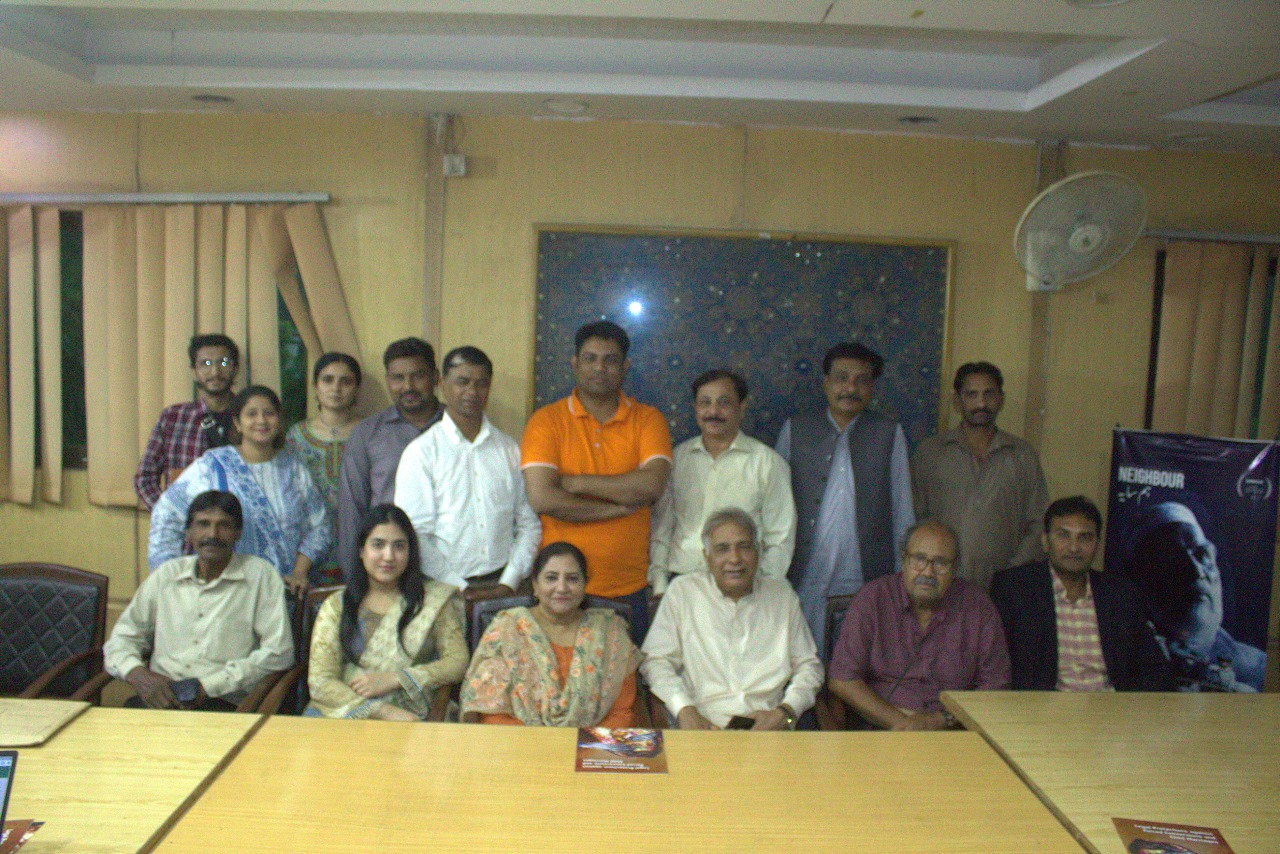Lahore: News Desk
The Centre for Social Justice (CSJ) partnered with the Cosmopolitan Club Lahore to screen the award-winning documentary film Hum Saya – Neighbor on Tuesday. Following the screening, a panel discussion addressed the critical issue of forced conversions, particularly concerning minor girls in Pakistan.
Hum Saya, which tells the true stories of young girls who have experienced forced conversion, received the Best Short Documentary on Human Rights award at the Venice Intercultural Film Festival in 2023. The film has also been selected for its fifth international screening at the 7th FICNOVA in Spain in 2024. The documentary is available for viewing here.
During the panel discussion, human rights experts, including Peter Jacob, Executive Director of CSJ, Nabila Feroz Bhatti, and Prof. Dr. Sara Rizvi Jafree, highlighted the alarming increase in forced conversions and child marriages in Pakistan. They pointed out that coerced conversions not only violate fundamental human rights but also remain largely unaddressed due to inadequate governmental responses.
Jacob reported that, as of August 2024, 35 incidents of forced conversion had been documented, with 11 occurring in Punjab and 24 in Sindh. Since 2021, at least 404 incidents have been reported. Despite these alarming figures, the government has denied the existence of forced conversions in recent UN treaty body reviews. Jacob emphasized the necessity for specific legislation to regulate faith conversions and criminalize forced conversions, particularly for underage minority girls.
Dr. Sara Rizvi Jafree, Associate Professor and Chairperson of the Department of Sociology at Forman Christian College University, noted that while extremists may justify forced conversions as a religious duty, such actions contradict Islamic teachings. She elaborated on the severe consequences faced by victims, including trauma, loss of identity, and long-term mental health challenges. Jafree called for both legislative action and social interventions to support victims and survivors, including the establishment of a database to monitor their well-being.
Nabila Feroz Bhatti, a human rights advocate, highlighted the issue of early child marriage as a serious yet neglected problem in Pakistan. She pointed to the Criminal Law (Amendment) Act 2017, which prohibits forced marriages involving minors and non-Muslim women. Despite this legal safeguard, implementation remains a challenge, as the government has not fully acknowledged the gravity of these issues.
The panel discussion concluded with a consensus on the urgent need for protective measures for victims and survivors, including legal representation and rehabilitation programs. The experts emphasized that comprehensive support systems are essential to address the trauma and challenges faced by those affected by forced conversions and child marriages in Pakistan.


